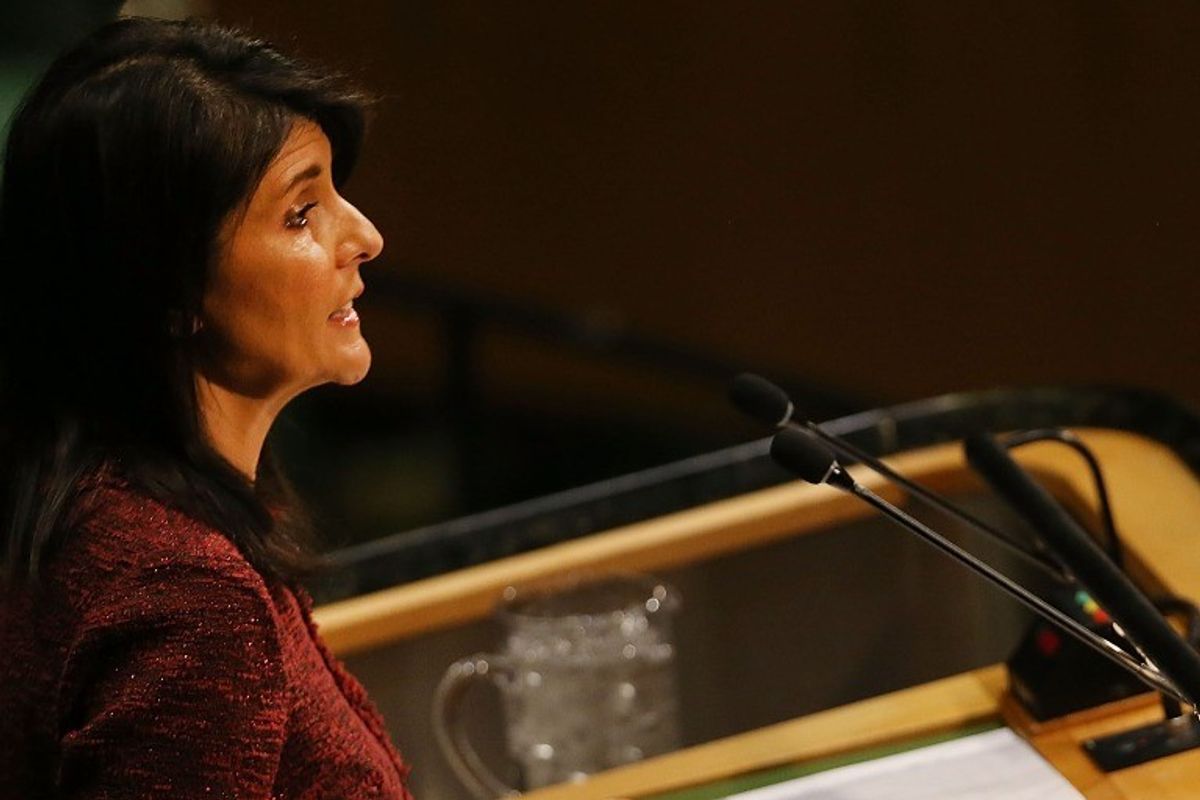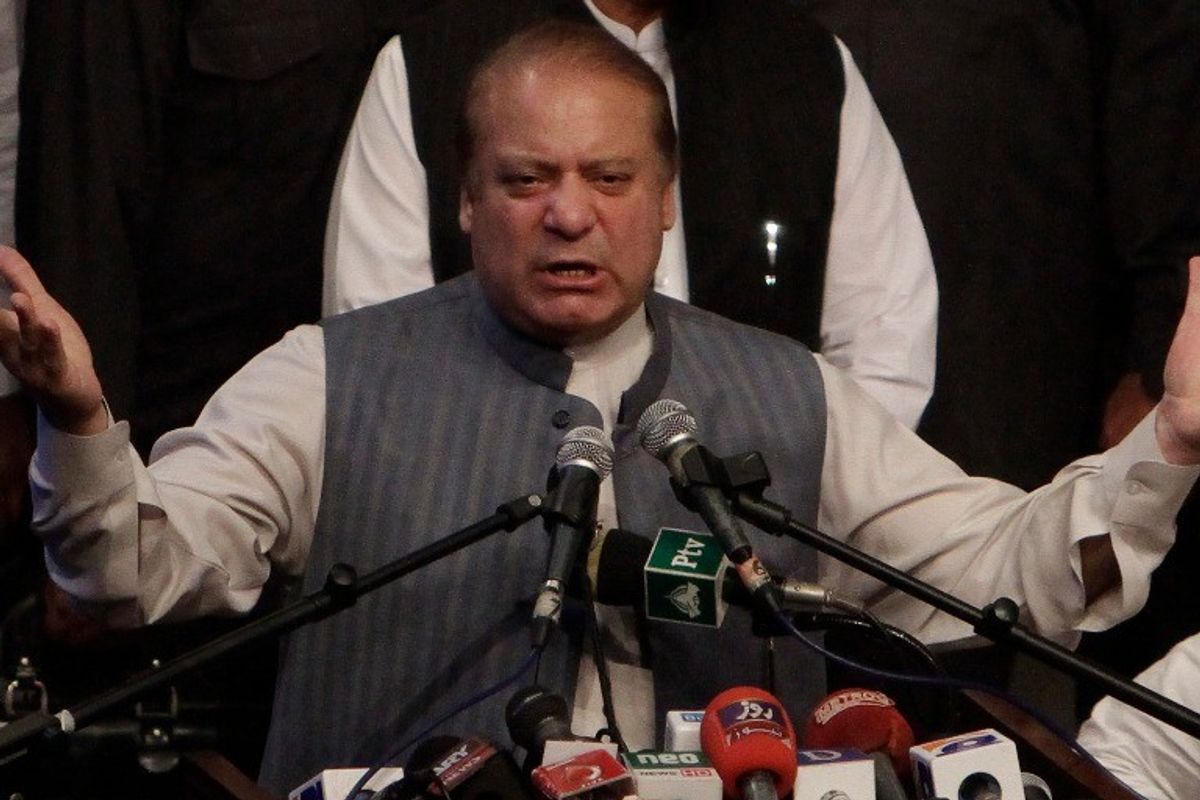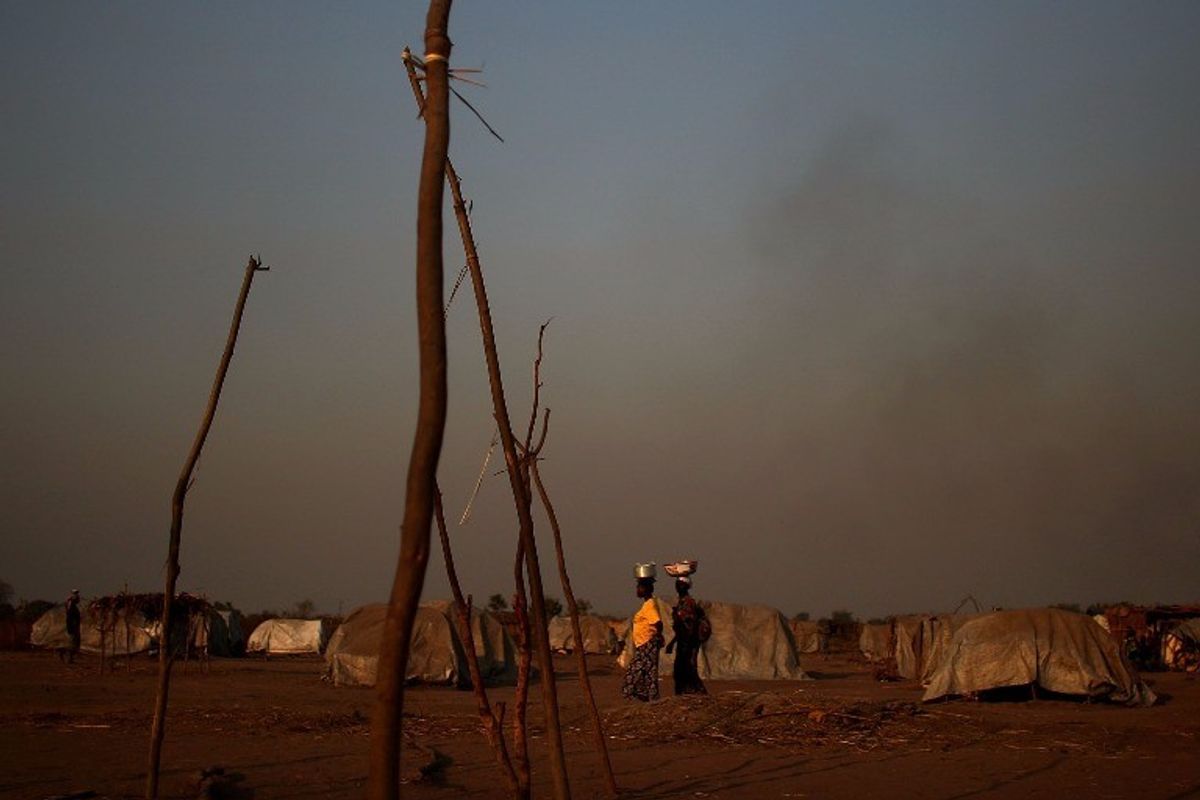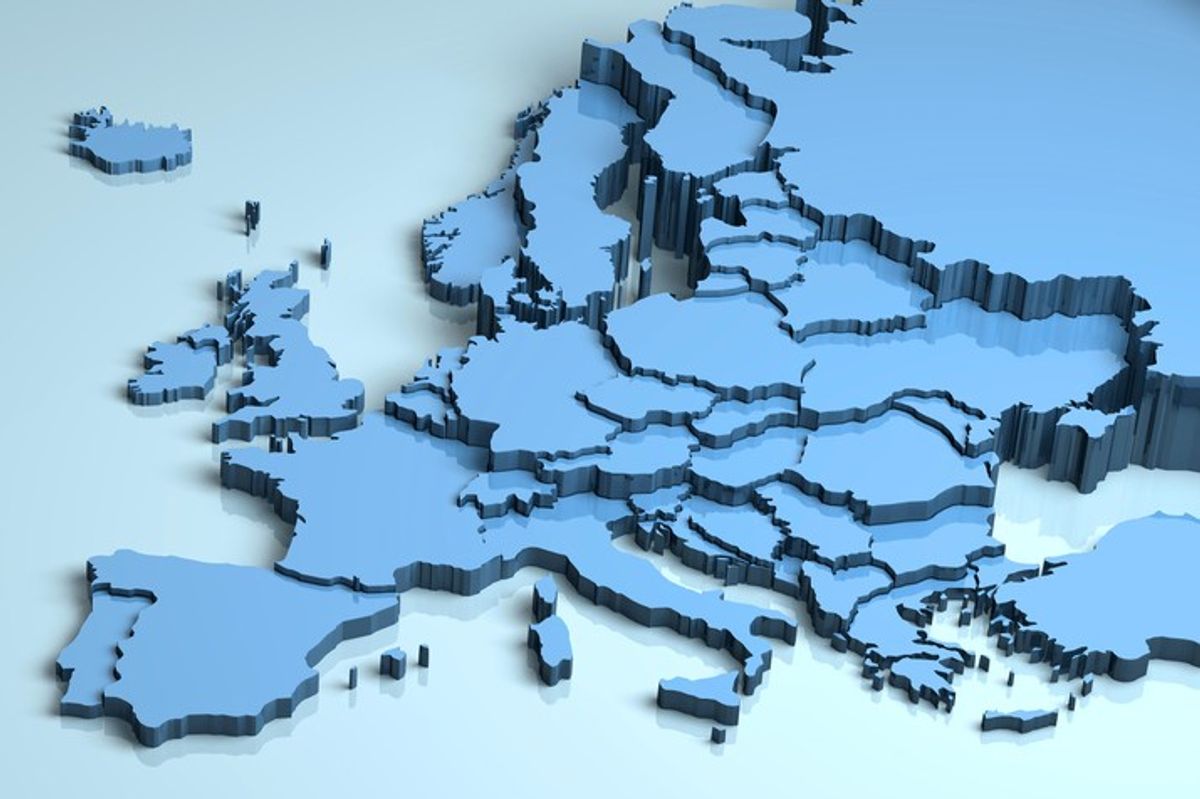In June, 16 retired generals and admirals testified to the Senate Armed Services Committee that international economic development assistance "is not charity - it is an essential, modern tool of U.S. national security." This assertion is backed up by a number of studies, which closely link the economic development of a country with the risk of violent conflict. However, President Trump's proposed budget looks to slash almost $26 billion from diplomacy and foreign aid programs next year. The Cipher Brief’s Fritz Lodge spoke with J.J. Messner, Executive Director of the Fund for Peace, on the link between economic development and violence, and how U.S. economic aid can enhance national security.
The Cipher Brief: When you think about international conflicts, what are the biggest drivers in your mind? Specifically, what role does poverty and economic insecurity play in fueling such conflicts?
J.J. Messner: Often when we talk about insecurity and general conflict, we look at various schisms in society or maybe even religious or ethnic drivers to conflict, and these certainly exist. But often conflict can be fueled by economic inequality and some of those economic drivers that really lead people, or societies rather, to instability. So if we look at conflict and insecurity, it’s fundamental that we consider those economic aspects.
TCB: Can you give some examples of where you’ve seen this show up in the Fragile States Index numbers – both over time and also this year, did you see any striking examples in the FSI?
Messner: The exact economic causes can sometimes be difficult to track because they’ll often manifest themselves in indirect ways. For example, if you look at countries where there’s a breakdown of social cohesion, so whether it be an increase in sectionalization at a political level or an increase in group grievance – those will show up directly as problems in social cohesion, but that breakdown can often be caused by economic issues. Again, inequality, deprivation, poverty, these can be more indirect effects so they are a bit harder to track.
The other problem is, if you look at cold hard economics, an economy might actually be performing pretty well on its face, but you need to look a little bit deeper to determine whether everyone is benefitting from that success. A good example is the United States. The U.S. economy has been doing particularly well over the last several years, but at the same time wealth inequality has gotten worse. There’s been significantly more consciousness of late of the increasing levels of inequality and poverty in the country.
So, looking at economic data on its own can be misleading. It’s always very important to look at the economic data together with data on social cohesion. Using the U.S. as an example again, even though the top line economic indicators have all been doing relatively well, the social cohesion indicators have been doing comparatively badly. Over the last five years, according to our data, the United States is the most-worsened country in the entire world when it comes to our social cohesion indicators. Again, you really need to look at the data more globally, not in isolation.
TCB: When you talk about religious pressure, social cohesion, these kinds of things, you say that underlying economic factors are often to blame. How often have you found this to be the case?
Messner: If you look at some of the extremism that is to be found in countries like Mali or other West African countries, is every extremist necessarily a religious fanatic? Potentially no. Some of our data and research has demonstrated that plenty of extremism and radicalization benefits from a cohort of particularly young people who feel disenfranchised, who lack any sort of economic opportunity, and they either become prone to radicalization because there’s no competing message, or alternatively, even if they’re not radicalized, they may take part in criminal activities simply for economic reasons.
Looking at extremism and conflict solely through a religious lens – for example – can be too narrow and I think there needs to be a broader understanding of what drives people into these sorts of activities. Often it might be economic conditions, and even if it is religious true believers, then there may well be underlying factors of economic disempowerment or disenfranchisement that go along with it.
TCB: When you look at U.S. foreign aid and economic development programs, how effective are they at countering some of these root causes, and what benefit can that have for U.S. national security?
Messner: It’s important for us to realize first of all just how little a proportion of the U.S. budget actually goes into foreign aid, if you look at the foreign aid budget as a whole, a lot of it goes into defense spending. If you’re talking about truly humanitarian aid, economic development funding, those sorts of things, the amount of money the U.S. government actually spends is quite small.
In terms of success, its ultimately good for America because building up other countries and bringing them up from poverty has multiple aims. First of all, it has the effect of increasing stability in a country and, as we’ve seen from any number of conflicts around the world over the years, the effects of conflict can be mind-bogglingly expensive, not to mention the humanitarian cost of lives either lost or disrupted. The point being, we can either spend a penny today on development and lifting societies up, or we can spend magnitudes more tomorrow to try to help resolve conflicts after they occur. You can’t unmake the omelet, as it were. So it’s much more efficient and effective to channel resources into aid and development to try to prevent conflict and stability before it occurs, rather than address it once it gets out of control.
But even beyond that, there is obviously a humanitarian aspect to all of this. But even if we are as a country to look at it through the lens of what’s in it for us, when it comes to aid and development spending, so much of that money is reinvested into America, so many of the programs are being implemented by American organizations, American citizens, taxpayers. Even if you look at something like food aid, for example, so much of that spending goes into production by farmers in Idaho or Iowa or other parts of America. When we talk about international development, it’s critical that we get the message right, because I think too often it’s tempting to look at foreign aid as a no strings attached charitable donations to foreigners, when in actual fact it’s very far from the case.
Much of that money gets spent on American expertise and reinvested back into America. From a purely transactional point of view, for America, stronger economies overseas are good for American exports. So if we’re able to assist in the economic development of other economies, even aside from the humanitarian dividend that comes with it and the conflict mitigation part that comes with it, we’re ultimately creating new markets as well. From that perspective, foreign aid is an enormously profitable investment, both economically and from a humanitarian perspective as well.
TCB: You might use the Marshall Plan as one of the biggest examples of that?
Messner: Absolutely. And that’s also a great example of how America can have a really positive impact in lifting countries out of conflict and on a path to peace and prosperity. And to think that 70 years ago, the United States was at war with both Germany and Japan. Now they are advanced economies and some of America’s closest allies. So it really does demonstrate exactly what you’re saying. Economic and humanitarian development can be a real investment not only in the futures of those countries, but also in America’s future as well.
TCB: Taking all that into account, what kind of effect could the Trump Administration’s planned budget cuts have on these efforts, and what would you tell U.S. policy-makers – both looking at the FSI data, but also with the general logic of the win-win scenario you just posited – what would you tell them about the value of these programs?
Messner: The Administration’s proposed cuts would have a devastating effect on international development, and what I would call for from the Administration is to really think very hard about the realities of international development and not perhaps the sound bites that some opponents of international development put forward – again, looking at international development in a new light, that it’s not charity.
This is an investment in humanitarian and economic capital. It is an investment in the security of countries overseas and ultimately the national security back here at home.
If we look at international development through that transactional approach, even then it’s a great benefit to the recipient countries and to America as well. And to cut back on that, it’s really cutting off our nose to spite our face.












